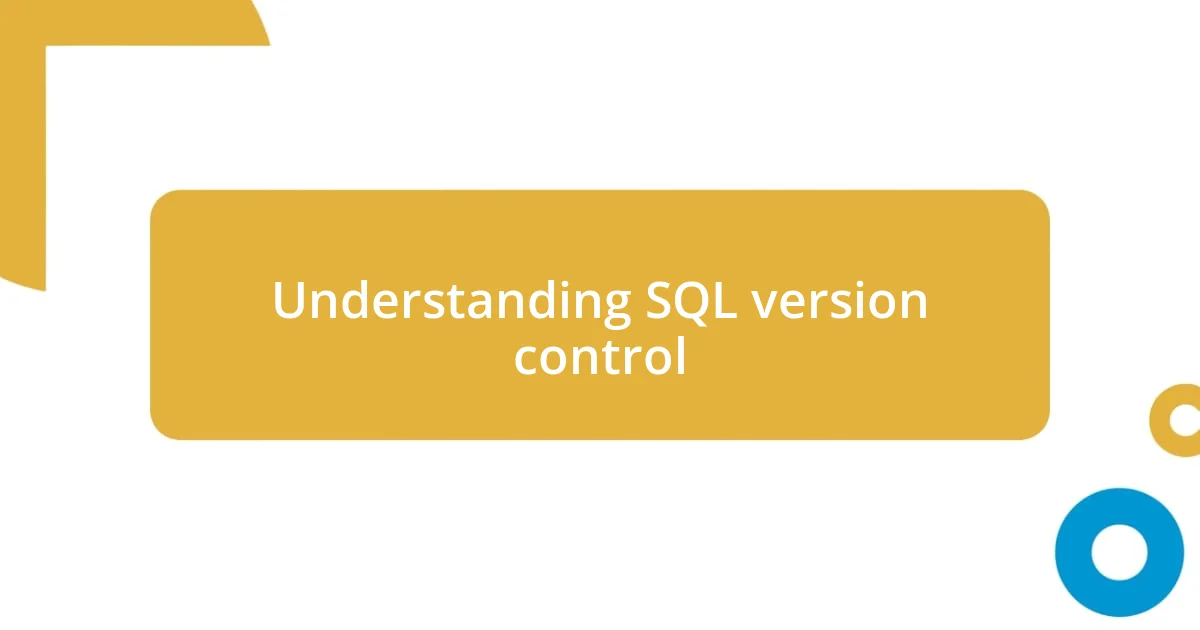Key takeaways:
- SQL version control is essential for maintaining database integrity and allows for tracking and reverting changes over time.
- It counters the misconception that version control is only for code, emphasizing the importance of tracking SQL code modifications, especially in team environments.
- Utilizing version control fosters collaboration and confidence among team members when implementing significant changes to database schemas.

Understanding SQL version control
When I first encountered SQL version control, I was struck by how vital it is for maintaining the integrity of your database. Imagine making a change to your database schema only to realize that it broke critical functionality—version control helps prevent that panic. It allows me to track changes over time, ensuring that I can always revert to a previous state if necessary.
A common misconception is that version control is only for code, but SQL code is just as deserving of meticulous tracking. Think about it: each time I modify a table or tweak a stored procedure, I want to be absolutely sure that I can verify what’s changed and why. This is especially crucial in environments where multiple developers might be working on the same database. Have you ever worked on a team where discrepancies surface during deployments? With proper version control in place, those chaotic moments can be significantly minimized.
I vividly recall a project where we faced a daunting challenge: a major feature required altering a significant portion of our database schema. Instead of diving in blindly, we utilized version control. This not only gave us confidence in making changes but also allowed us to collaborate more effectively, knowing we could roll back if needed. Doesn’t it feel good to have that safety net? Embracing SQL version control helped foster a more collaborative spirit among the team, transforming anxiety into confidence.












